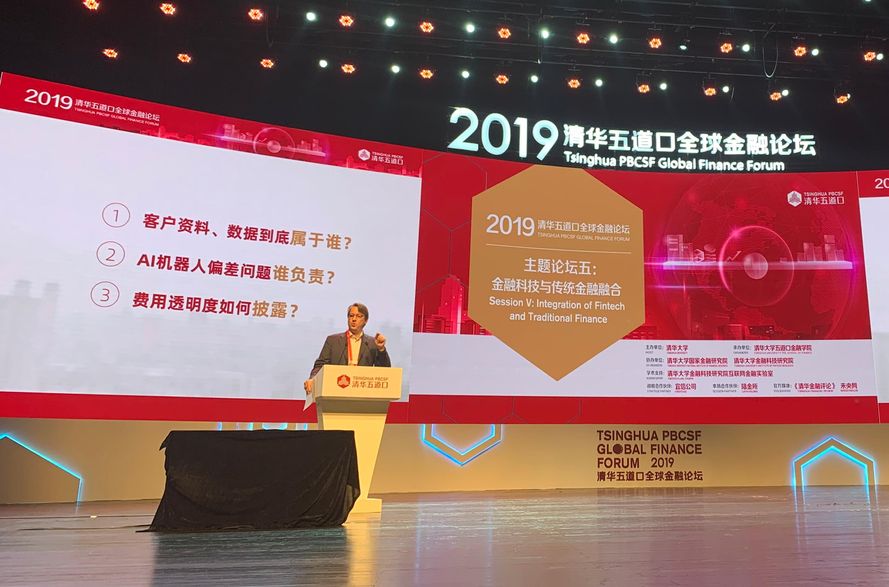Insights, Events and Videos
From mobile payments to cloud computing to artificial intelligence (AI), the traditional financial services model is being challenged by one form of financial technology after another.
It’s not hard to see technological solutions gradually taking over the core functions of thousands of traditional financial-service sector companies.
However, the rise of fintech is far more positive than negative. There are exciting opportunities for collaboration between traditional financial institutions and innovative technology companies. How they respond to three key trends in China could shape the development of the country’s financial services industry.
Gregory Gibb at Tsinghua PBCFS Global Finance Forum 2019.
First, financial regulations on the Mainland are tightening. With the concern for transparency sweeping the industry, financial institutions require more due diligence and better assessment of the inherent risks of products so customers can make more informed choices about which products match their risk appetite.
Second, more and more financial institutions are spinning off their wealth and asset management businesses, with opportunities to launch more customer-focused and digitally-enabled services.
Third, technology advancements, including blockchain, artificial intelligence and cloud computing, are on track to bring tremendous change to the financial sector in the next five years.
These trends offer the opportunity for financial services and technology companies to use their competitive advantages to ensure a robust financial market. Increased transparency and stricter regulations create opportunities for structural changes for the industry for the better.
Cooperation between fintech and traditional services creates great potential in four areas in particular.
First, the global reach and integration of technology platforms could support market growth and expansion of traditional financial services companies.
Technology could enable finance service providers to focus on product design and risk management. Using the latest technology to address improved Know Your Customer (KYC) requirements, financial institutions could conduct better and more efficient risk assessments on their clients’ affordability profiles. Big data and AI could also be used to analyze comprehensive and accurate product information, to provide targeted services and help clients to diversify investment risk.
Companies that uphold higher standards and integrate technology to improve operational efficiency will create a more transparent and safer market.
Second, the platforms could also carry a wide range of products from different financial institutions to match the different investment appetites of consumers.
Third, AI investment and investment consultation could be backed by big data. A focus on diversifying investment portfolios for better long-term returns could encourage investment consultancies and technology companies to work together to create new, well-diversified products.
Finally, blockchain technology could be used to streamline KYC processes and improve customer experience. By storing authenticated and unalterable KYC information with customers’ consent, a “digital passport” could be used by customers to sign into services provided by different financial institutions. Once the eligibility and documentation for qualified investors in China have been verified, each financial institution would not need to duplicate that process, lowering operating costs and raising efficiency.
Fintech is driving the transformation of the financial sector. There are ample opportunities for closer working partnerships between traditional financial institutions and innovative technology companies to ultimately benefit investors and sustain real economic development.

